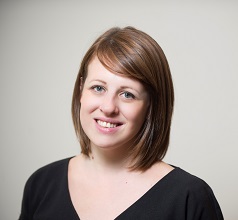
I had heard about the seed corn projects through friends working for the Centre for Biomedical Modelling and Analysis (CBMA). As a PhD student I hadn’t realised that I could apply. However, after a chance encounter with Professor John Terry I learnt that the programme was also for postgraduate students, and perfect for those like me wanting to learn new skills in data analytics. First thing the next day I contacted Chrissie Walker, the CBMA manager, for how to apply!
I am a final year PhD student studying the cellular and molecular aspects of diabetes under Professor Noel Morgan at the University of Exeter Medical School (UEMS). To be a CBMA secondee, I therefore had to freeze my studies. The CBMA team was great in the initial stages of the secondment. They helped me with all the financial and UEMS administration requirements necessary to freeze my PhD and undertake the secondment. For 6 months the Wellcome Trust’s Institutional Strategic support fund (ISSF) covered my wage and anything which I required to undertake the work. The process could not have been more straight forward.
I was assigned to a project which analysed neurodegeneration in amyotrophic lateral sclerosis (ALS) at the single cell level, using bioinformatics and machine learning. This was a world away from my usual work of cellular and molecular biology. I began the secondment with a two day incubator event. This was a fantastic way to get to know the team and the project Principal Investigator, Dr Akshay Bhinge. It was also a unique opportunity to learn about the toolbox of research services available at the University, of which I was unaware. These included services for public involvement and engagement, partnering with industry, and support in applying for grant funding. These are skills that I will need in order to become an independent researcher.
After the incubator event, next on the agenda was to start the project. My role was to take large datasets and ultimately identify gene networks which were dysregulated in ALS. In order to do this, I required a working knowledge of R, a programming language with a steep learning curve. I was sent on a week’s course at Goldsmiths (UoL) and was mentored by the expertise of the CBMA research fellow Dr Ryan Ames, whose patience never wavered. I never knew you could learn so much in the space of 6 months! Ultimately, I identified gene modules which are dysregulated in ALS, furthering our understanding of the disease pathology and identifying potential gene candidates for drug therapies.
From a career prospective the secondment was invaluable. I learnt data analytics, computer programming, and I am currently working towards a paper to submit for peer review. After getting to know the CBMA team at the weekly coffee mornings, I also formed a collaboration with Dr Matt Anderson to work on a project in autophagy in type 2 diabetes which is ongoing. Additionally, with my new-found skill set I was able to undertake a data analytics project at the University of Michigan writing code for linear mixed effects models with help from Professor Arthur Sherman at NIH. I have also written scripts for my own PhD data, saving myself hours of work.
In conclusion, thanks to this opportunity I have a new found understanding of data analytics and its potential applications, and its abstract nature is no longer daunting. The secondment has taught me many different skills, of which there are too many to mention, and which will be invaluable on my journey to becoming an independent researcher. My advice to anyone thinking about undertaking a seed corn project with CBMA – it is an opportunity not to be missed!